On June 12, 2025, Binance, the world’s largest cryptocurrency exchange by trading volume, announced a landmark decision to open its full suite of services to Syrian residents, following the U.S. and European Union’s easing of long-standing economic sanctions. This move marks a significant step toward financial inclusion for a nation recovering from over a decade of civil war and economic isolation. In this blog post, we explore the details of Binance’s expansion into Syria, the implications for the country’s economy, and the broader context of cryptocurrency’s role in post-sanctions Syria.
The Context: U.S. and EU Sanctions Lifted
Syria has faced stringent economic sanctions from the U.S. and EU for decades, intensified under the 2019 Caesar Syria Civilian Protection Act, which effectively cut the country off from global financial systems. These measures, targeting the former Assad regime, restricted access to banking, trade, and investment, leaving Syrians reliant on informal financial channels, including cryptocurrencies, for cross-border remittances and economic survival. The World Bank estimates Syria’s GDP has contracted by over 60% since 2010, with the Syrian pound losing significant value, exacerbating economic hardship.
In May 2025, the Trump administration, following discussions with Saudi Arabia and Turkey, issued General License 25, authorizing transactions previously prohibited under the Syrian Sanctions Regulations. This decision, announced during President Trump’s Middle East tour, was described as a step to support Syria’s new leadership under interim President Ahmed al-Sharaa, who assumed power after the fall of Bashar al-Assad in December 2024. The EU followed suit, lifting most economic sanctions while maintaining restrictions on individuals linked to the former regime and security-related exports. These policy shifts, driven by a desire to stabilize Syria and prevent a descent into further chaos, have opened the door for economic reintegration, including access to digital finance platforms like Binance.web:0,10,12,20,22
Binance’s Entry into Syria: What It Means
Binance’s announcement on June 12, 2025, signaled the removal of Syria from its Prohibited Countries list, granting Syrian residents full access to its platform. This includes:
- Trading: Spot and futures trading for over 300 cryptocurrencies, including Bitcoin (BTC), Ethereum (ETH), XRP, Dogecoin (DOGE), Shiba Inu (SHIB), Binance Coin (BNB), and Toncoin (TON).
- Staking and Earn Products: Opportunities to earn passive income through staking and interest-bearing programs.
- Binance Pay: A crypto-based payment system for cross-border transactions and remittances.
- Peer-to-Peer (P2P) Trading: Enabling direct crypto transactions between users, critical in a region with limited banking infrastructure.
To access these services, Syrian users must complete Binance’s Know Your Customer (KYC) verification, ensuring compliance with international regulations. Binance CEO Richard Teng emphasized the move as a commitment to “financial freedom,” stating, “Welcome, Syria!” on X. The exchange highlighted that this expansion aligns with international efforts to support Syria’s economic recovery and growth of its digital economy.web:0,3,6,7,8,11post:0,2,3
Why This Matters for Syria
Syria’s economy has been decimated by 14 years of civil war, with traditional banking systems struggling to meet the needs of citizens. The lifting of sanctions has sparked optimism, with initiatives like a $7 billion energy infrastructure deal with U.S., Qatari, and Turkish firms and a $6.5 billion EU humanitarian aid commitment signaling a push for reconstruction. However, limited banking access and a devalued local currency have made cryptocurrencies a vital lifeline for many Syrians, particularly for remittances, which account for a significant portion of economic activity.web:10,14
Binance’s entry offers several benefits:
- Financial Inclusion: For Syrians previously excluded from global financial systems, Binance provides a secure platform to engage in the digital economy, trade assets, and access stablecoins for price stability.
- Economic Recovery: Crypto trading and remittance tools like Binance Pay can facilitate cross-border transactions, supporting small businesses and individuals in a country where traditional banking is unreliable.
- Digital Economy Growth: With Syria’s new leadership prioritizing improved internet connectivity, Binance’s services align with efforts to modernize the economy and integrate it into global markets.
- Empowering Individuals: As Binance noted, “Even as crypto became a lifeline for people facing inflation or relying on cross-border remittances, access remained out of reach. That changes today.”web:3,10,12
Posts on X reflect enthusiasm for this development, with users describing it as a “BIG win for financial freedom” and a step toward integrating Syria into the global crypto economy. However, some caution that infrastructure challenges, such as unreliable electricity and internet, may limit immediate adoption.post:0,2,4
The Broader Crypto Context in Syria
Binance’s move comes at a time when cryptocurrencies are gaining traction in regions affected by economic instability. In Syria, crypto has been used informally for years to bypass sanctions, but platforms like Binance were previously inaccessible due to compliance with international restrictions. The easing of sanctions now allows regulated platforms to operate, reducing reliance on risky, informal channels. Other crypto exchanges may follow Binance’s lead, further boosting adoption.web:4,10
The launch also coincides with broader crypto market trends. Bitcoin recently surpassed $100,000, and Ethereum, while trailing with a price around $2,733.87, continues to dominate DeFi and NFT ecosystems. Binance’s inclusion of Ethereum and other tokens in Syria could drive local interest in these assets, particularly as the country seeks to rebuild its digital infrastructure. Societe Generale’s upcoming “USD CoinVertible” stablecoin, set to launch on Ethereum and Solana blockchains in July 2025, may further enhance Syria’s access to stable digital assets.
Challenges and Risks
While Binance’s entry is a positive step, several challenges remain:
- Infrastructure Limitations: Syria’s war-torn infrastructure, including unreliable electricity and internet, may hinder widespread crypto adoption. The government’s focus on improving connectivity is critical to overcoming this barrier.
- Regulatory Uncertainty: Although U.S. and EU sanctions have been eased, the EU’s sanctions relief is “conditional,” and restrictions could be reinstated if Syria’s new government fails to maintain stability. The UN Security Council’s sanctions on groups like Hayat Tahrir al-Sham (HTS) also complicate the regulatory landscape.web:13,16
- Economic Instability: With a GDP contraction of over 60% and a devalued currency, Syrians may face barriers to entry, such as affording initial crypto investments or navigating volatile markets.
- Security Concerns: Ongoing security challenges, including threats from ISIS insurgents and regional tensions, could disrupt economic recovery efforts and crypto adoption.
The Road Ahead
Binance’s launch in Syria is a pivotal moment for the country’s reintegration into the global economy. By providing access to over 300 cryptocurrencies, staking opportunities, and remittance tools, Binance is empowering Syrians to participate in the digital asset economy. This aligns with broader reconstruction efforts, including major infrastructure investments and humanitarian aid, aimed at stabilizing the nation.
For investors and crypto enthusiasts, this development highlights the growing role of cryptocurrencies in underserved regions. As Syria rebuilds, platforms like Binance could play a transformative role in fostering financial inclusion and economic resilience. However, success will depend on addressing infrastructure challenges, maintaining regulatory clarity, and ensuring market stability.
As one X post aptly stated, “Binance’s rollout in Syria features a full access launch, allowing Syrians to trade at least 300 tokens… a major step toward financial inclusion.” The world will be watching to see how this move shapes Syria’s economic future and whether other crypto platforms follow suit.
Disclaimer: Cryptocurrency investments carry significant risks due to market volatility. This blog post is for informational purposes only and does not constitute financial or investment advice. Always conduct your own research before engaging in crypto trading.
Sources:
- Voice of Nigeria Broadcasting Service, TechI, BitcoinEthereumNews, 99Bitcoins, CryptoTimes, Bitcoin.com, CoinTelegraph, TradingView, CoinPedia, Yahoo Finance, CCN, The National, CryptoNews, Foreign Policy, Newsweek, Reuters, Euronews, Al Jazeera, The New York Times, NBC News, CNNweb:0-24
- Posts on Xpost:0-7


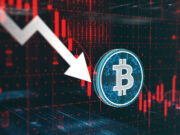
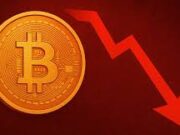







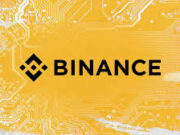




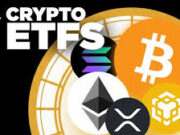



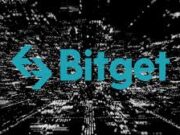


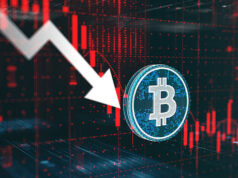
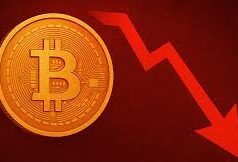



The Syrian pound’s basically worthless, so this could be a lifeline.
After years of sanctions, Syrians finally get to trade BTC and 300+ coins